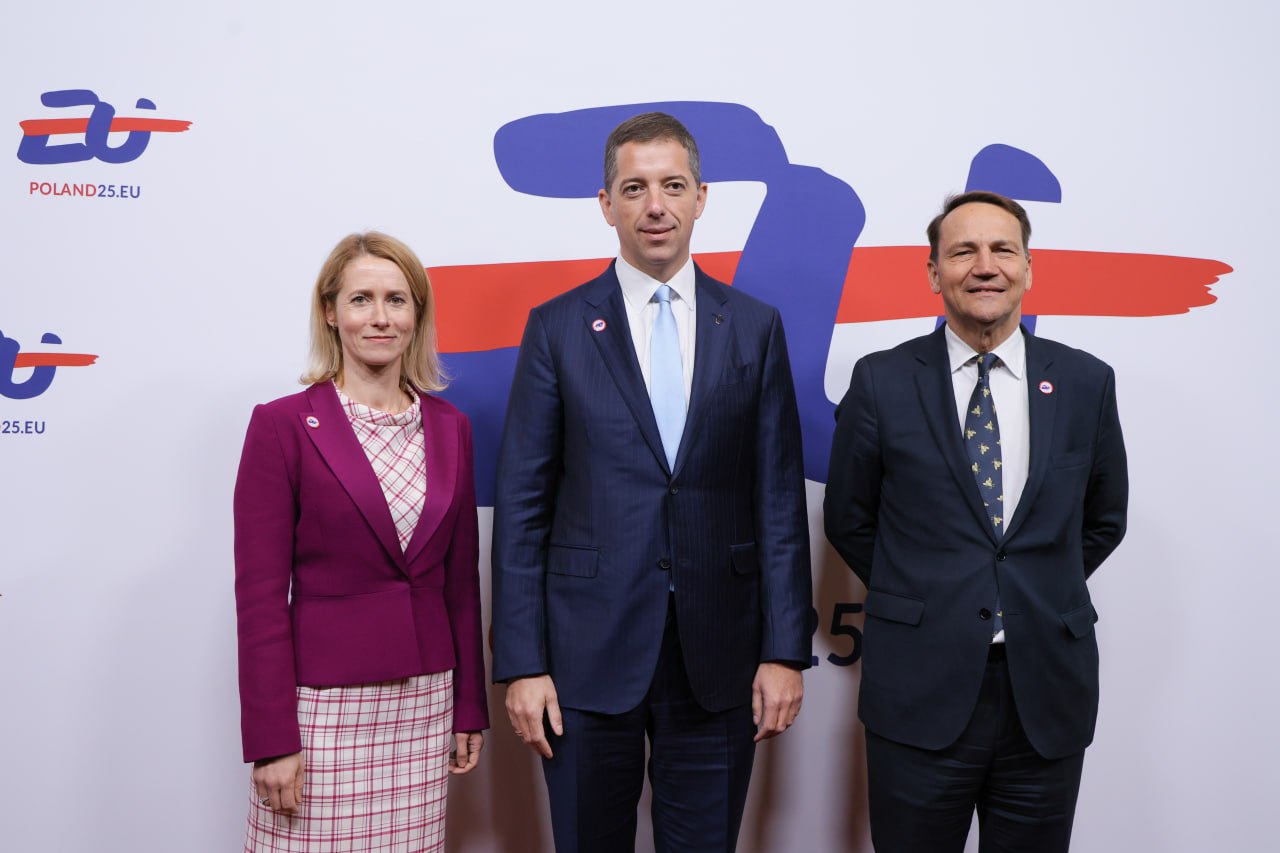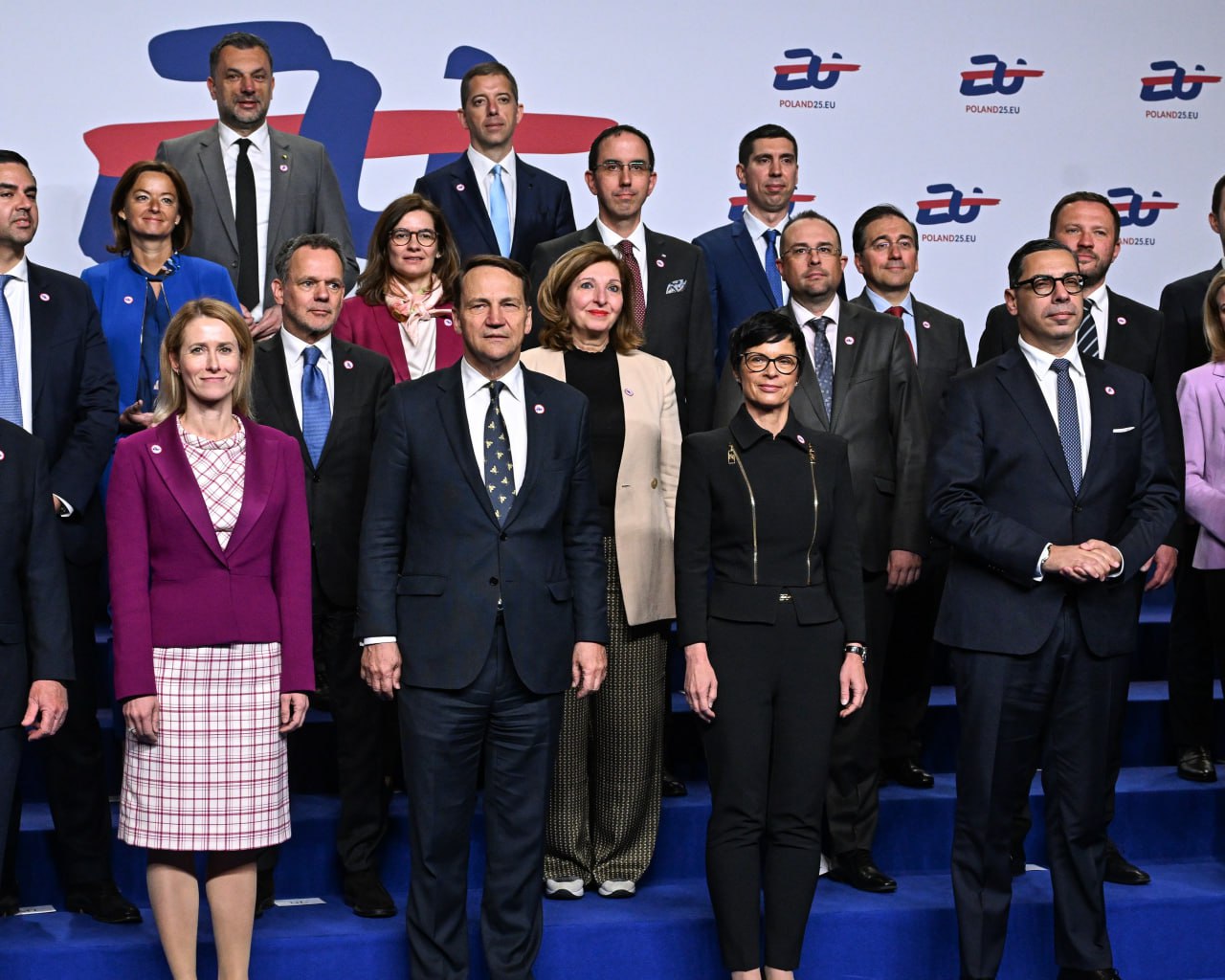Đurić: Warsaw meeting reaffirms Serbia’s clear European perspective
Minister Đurić underlined that the meeting reaffirmed Serbia’s clear European future, noting that a strong and unambiguous voice of support was expressed for Serbia’s European integration path, its reform agenda, economic advancement, and all the positive steps the country is undertaking.
The Serbian Foreign Minister emphasized that today’s high-level discussions, involving the High Representative of the European Union for Foreign Affairs and Security Policy, H.E. Kaja Kallas, the European Commissioner for Enlargement, H.E. Marta Kos, and thirty Foreign Ministers, represent a significant and serious moment for Serbia.
“Given that the meeting was held behind closed doors in the so-called Gymnich format, what I can share is that while some countries did express critical tones regarding President Vučić’s recent participation in an event in Moscow—namely Luxembourg, Belgium, and Croatia—what was equally clear was a strong expression of support for Serbia's path toward European integration, reforms, and economic progress. There was also a voice of reason opposing efforts to draw a false equivalence between Serbia and other negative tendencies on the European continent, as well as from those who refuse to equate Serbia’s policies with those of any major power,” Minister Đurić stated.
He extended particular gratitude to Serbia’s Italian friends, whose representative spoke firmly in support of Serbia, noting that this may reflect either the recent dialogue between President Vučić and Prime Minister Meloni or the traditionally strong ties between the two nations. Minister Đurić also expressed appreciation to the Hungarian representatives, as well as to Poland and the European Union as hosts of the meeting.
“Among Serbia’s strategic priorities are institutional strengthening, reducing social tensions, fostering societal dialogue, advancing the economy and infrastructure, and enhancing the regional atmosphere—all, above all, for the benefit of our citizens. As such, Serbia is steadily progressing toward being accepted as a full-fledged EU member, with a rightful place at the decision-making table. As Njegoš said, ‘A cup of honey requires a cup of gall,’” Đurić observed.
Minister Đurić noted that, following this meeting, he views the pace of Serbia’s European integration with greater optimism than prior to arriving in Warsaw.
“I am encouraged by the energy I witnessed today with regard to EU enlargement—not only from High Representative Kallas and Commissioner Kos, but also from many of our European partners. I repeat, we did not hear only criticism of Serbia—despite the specific circumstances and the repeated attacks on President Vučić related to his participation in the Moscow event—but also words of encouragement from various countries regarding Serbia’s reform efforts, government policy, and economic progress achieved under the leadership of President Vučić and successive governments,” Đurić emphasized.
One of the central topics of discussion in Warsaw, the Minister noted, was the situation in Bosnia and Herzegovina. He stated that the pressure on the leadership of the Republic of Srpska, and in particular President Dodik, is considerable and increasing.
“Our message remains consistent, as it has for the past thirty years: Serbia supports Republic of Srpska in its Dayton-defined competences, as well as the territorial integrity of Bosnia and Herzegovina. At the same time, we encourage inclusive dialogue within Bosnia and Herzegovina among all relevant stakeholders, and believe it is essential that such dialogue involves all democratically elected representatives, without exclusions. This message was echoed by a number of countries, although some states voiced particularly sharp positions regarding President Dodik,” Minister Đurić noted.
He also drew attention to the fact that the meeting featured instances of labeling and disappointing misrepresentation of facts by the representatives of Pristina.
“This was presented in such a rudimentary and self-defeating manner that, had it not been unpleasant to listen to, one might almost be satisfied with the tone and style, which were ultimately self-destructive. Judging by the reactions of other ministers, it was clearly not well received,” Đurić concluded.



